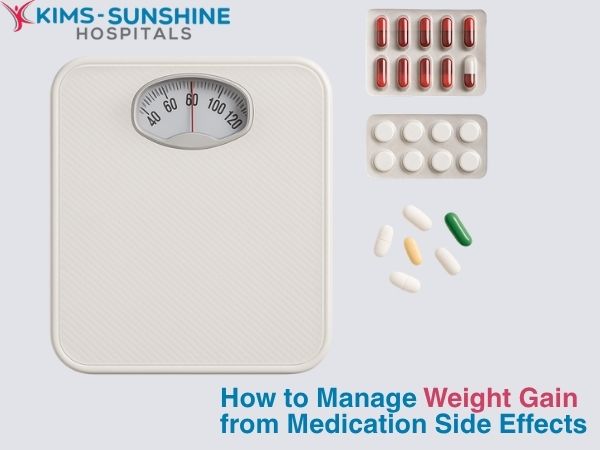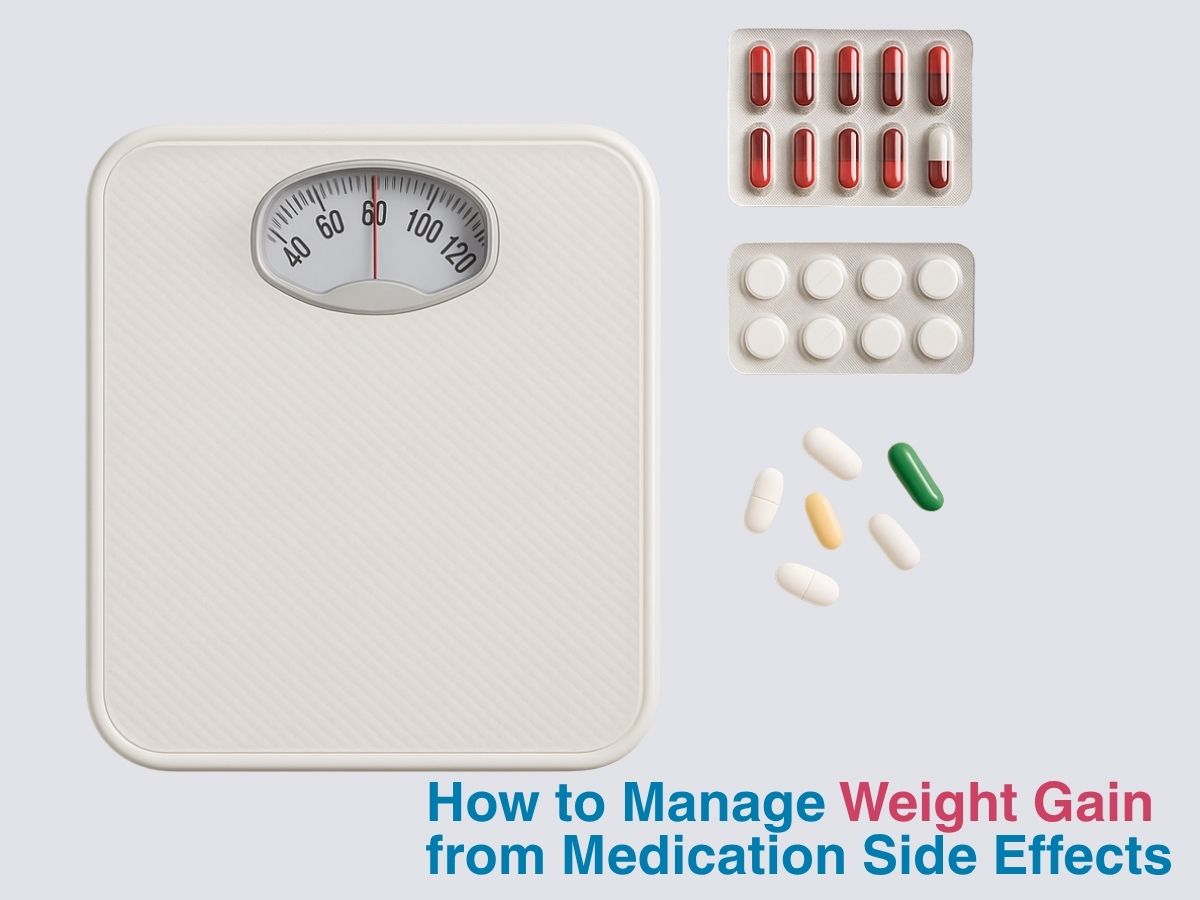
How to Manage Weight Gain from Medication Side Effects

Weight gain from taking specific kinds of medications can occur due to their ability to influence your metabolism and the body using different cellular pathways. If you happen to be underweight or normal, then some weight gain may not be an issue at all. But, if you are obese or overweight and suffer from other conditions like diabetes, heart disease, high blood pressure or some other chronic condition, then weight gain from medication usage can be problematic.
Why Do Medications Cause Weight Gain?
Medications can cause weight gain because they can cause your body to react to them in specific ways-
- You may feel hungrier than usual and end up eating more.
- Your body may not burn as many calories as before, due to changes in metabolism- which means more fat is deposited.
- You may notice fluid retention and the weight gain is because of that and not just fat.
- Some drugs may influence pathways that are responsible for storage and breakdown of sugars and fats in the body.
- Some drugs may cause more fatigue- which means you will not feel active enough to work out.
- There are others where the reason for weight gain is not well understood.
Some common drugs which can cause weight gain include steroids, antidepressants, antipsychotics, antiepileptics, birth control pills, blood pressure regulating pills etc.
Tips To Control Weight Gain Due To Steroids
With steroids, the higher the dose and longer the duration of the course, more are the chances of you gaining weight. But, steroids are the only drugs which can effectively treat autoimmune disorders, nervous issues and it is hard to lose weight when you are on a full steroid regimen. It makes sense to wait for about 6-12 months after your treatment regimen is done and then you can try to lose weight, because by then your body must have attained some level of normalcy. One major concern with steroid treatment, apart from weight gain, is the increase in blood glucose levels. If you are diabetic, management becomes even more important. Steroids are excellent at reducing inflammation- and are the drug of choice for a lot of conditions. Other drugs may not work as well as steroids, so asking for a replacement may not be a great idea.
How To Lose Weight While On Antidepressants
Antidepressants have not been directly linked to weight gain, but they may precipitate it- some people with depression may use binge eating or snacking bouts as coping mechanisms, leading to weight gain. Others may begin to feel better with medication and may begin to eat better. It is important to remember that weight gain is a normal thing to occur, as one gets older. You can see if you can switch out antidepressants or check about reducing dosage. Most people however do not respond well to replacement medications. Short term antidepressant use may help you with weight loss as there is change in serotonin levels, which reduces impulse eating. But, long term usage can cause you to crave more carbohydrate rich foods because your serotonin receptors are permanently downregulated. But, remember the ‘may’ here. If you have gained some weight but are feeling better than before in all other aspects, then it is time you begin to pay close attention to your diet, instead of complaining about the drug only. Antipsychotics on the other hand directly regulate those centers in the brain related to satiety and food intake- which means metabolism may change, you may have to deal with high blood pressure and even cause metabolic syndromes in the long run.
Conclusion
You need to watch what you eat and try to get some exercise everyday or every other day in a week. You should exercise strict portion control with a few meals too. Drinking enough water and getting enough fibre everyday can help you lose weight or stay at a particular weight too. Don’t consume too much salt- that is sodium in particular- avoid salty snacks and look for sodium amounts in foods that you shop for, in the nutrition labels. Try to eat smaller meals, instead of 3 large meals in a day. Eat plenty of protein, everyday. This will keep you feeling fuller for longer and you won’t resort to snacking. These are some natural ways to control drug related weight gain.






